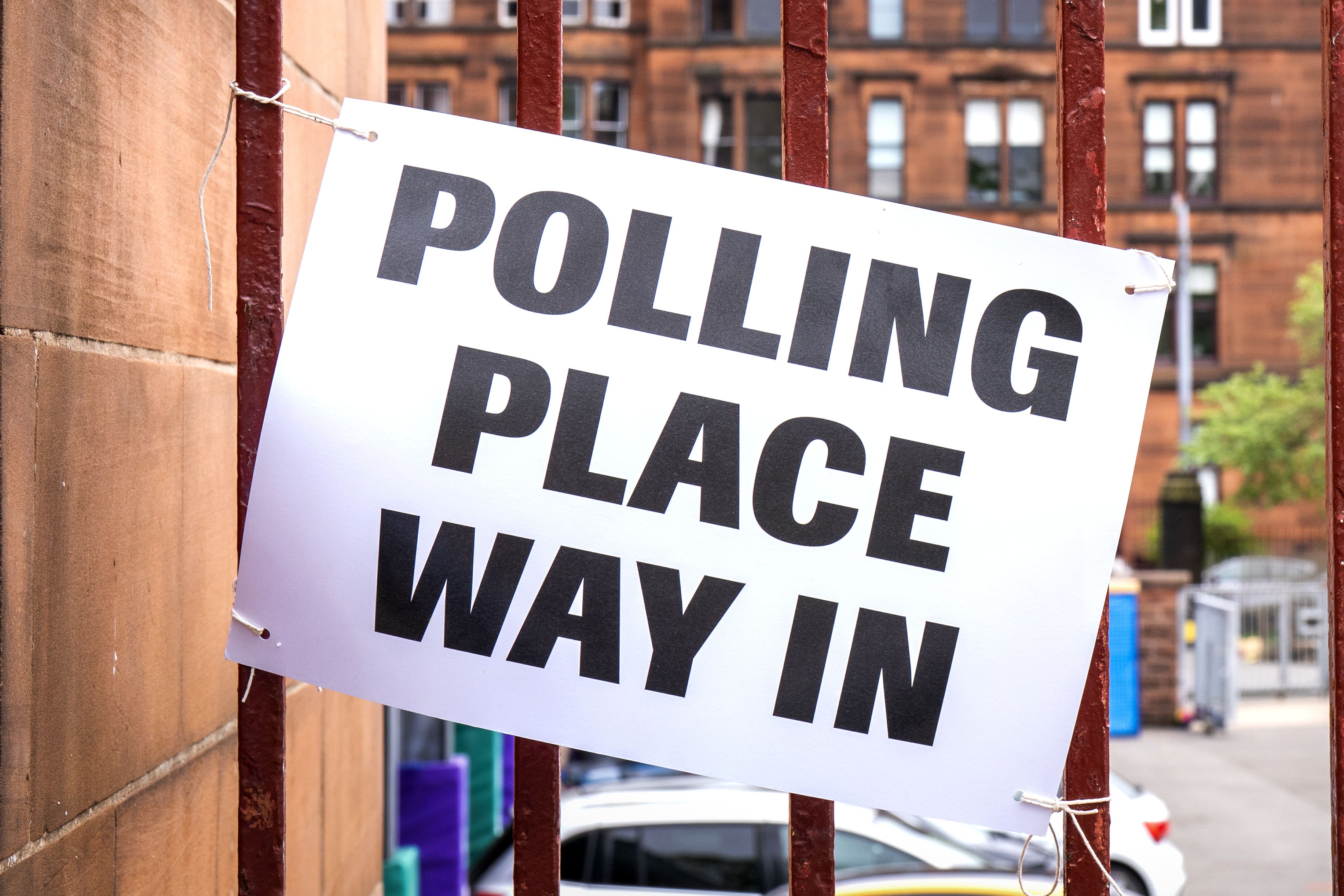Campaigners claim ‘countless examples’ of would-be voters turned away over ID
People voting in Thursday’s local elections in England are being reminded to take photo ID with them.

Your support helps us to tell the story
From reproductive rights to climate change to Big Tech, The Independent is on the ground when the story is developing. Whether it's investigating the financials of Elon Musk's pro-Trump PAC or producing our latest documentary, 'The A Word', which shines a light on the American women fighting for reproductive rights, we know how important it is to parse out the facts from the messaging.
At such a critical moment in US history, we need reporters on the ground. Your donation allows us to keep sending journalists to speak to both sides of the story.
The Independent is trusted by Americans across the entire political spectrum. And unlike many other quality news outlets, we choose not to lock Americans out of our reporting and analysis with paywalls. We believe quality journalism should be available to everyone, paid for by those who can afford it.
Your support makes all the difference.Campaigners have reported “countless examples” of would-be voters being turned away from polling stations on the first elections where photo identification is mandatory.
The Electoral Reform Society, which has strongly opposed the introduction, urged ministers to rethink the new law as voters went to the polls in the local elections in England on Thursday.
The Association of Electoral Administrators said the polls were “running as smoothly as usual”.
Rishi Sunak has forecast a “hard night” for his Conservatives as he faces the first major electoral test since becoming Prime Minister six months ago.
As the Tories lag far behind Labour in the polls, the Conservative leader insisted they were moving away from “box set drama” politics after the premierships of Boris Johnson and Liz Truss.
The council and mayoral elections are the first time in England that identification from a defined list has been mandatory to cast a vote.
Labour is among those criticising the Government’s move, warning that it could lock millions out of voting.
Jess Garland, the Electoral Reform Society’s director of policy and research, said: “We’re already seeing countless examples of people being denied their right to vote due to these new laws.
“From people caught out by having the wrong type of photo ID to others turned away for not looking enough like their photo.
“One voter turned away is one voter too many. The Government must take lessons from the problems we’re seeing today at polling stations across the country and face up to the fact that these new rules damage our elections more than they protect them.”
In the early afternoon, the Association of Electoral Administrators said that no major problems had been reported, though it would likely not hear about individual voters being turned away.
Chief executive Peter Stanyon said: “Polling day appears to be running as smoothly as usual, which is testament to the months of planning and hard work from returning officers and electoral administrators running today’s elections.
“We hope the rest of the day continues along the same lines.”
Layla Moran, the Lib Dem MP for Oxford West and Abingdon, said she had been told of issues in her constituency.
“We’ve had reports by our tellers of people being turned away at polling stations for lack of correct ID,” she said.
“Across the country I’m worried this will be significant numbers and far more than the exactly 0 people found guilty of fraud last year.”
Conservative MP for Southend West Anna Firth said she had to go back to the car to retrieve her ID so she could vote as she reminded people not to forget their documentation.
The Electoral Commission, which was given £5.6 million to carry out a public awareness campaign, has tasked councils with recording how many would-be voters are turned away.
No record will be made if greeters deployed outside polling stations turn people away.
The watchdog plans to publish its initial findings into how the ID mandate affected voting in the coming weeks.
The Government has estimated that around 4% of Britain’s population – or two million people – were unlikely to have a valid form of photo ID to vote.
Passports, driving licences and blue badges are among the IDs permitted, as are the free certificates that could be applied for ahead of the vote.
Photo ID will be required in England during future general elections under the policy.
On Thursday, more than 8,000 council seats were being contested across 230 local authorities, while mayors were being selected in Bedford, Leicester, Mansfield and Middlesbrough.
No votes were taking place in London and Birmingham, along with other areas including Cornwall, North Yorkshire and Cumbria.
Conservative Party chairman Greg Hands has said they could lose as many as 1,000 council seats, but many political analysts suspect he was managing expectations.
However if Labour, riding high in national polling, fails to make decent gains then party leader Sir Keir Starmer would be put under pressure.
An Opinium survey carried out online last week indicated the party could secure 44% of the vote share, versus the Tories’ 26%.
But the last time the same council seats were contested was in May 2019, when the Tories performed poorly under Theresa May as she struggled with Brexit.
The Conservatives lost more than 1,300 council seats and majority political control of 44 councils, meaning they had less to lose on Thursday than they might have done.
Polling stations opened at 7am and will close at 10pm.
Around a quarter of the votes are expected to be counted overnight, with the rest counted during the day on Friday.